From the Chicago Reader (July 21, 2006). — J.R.
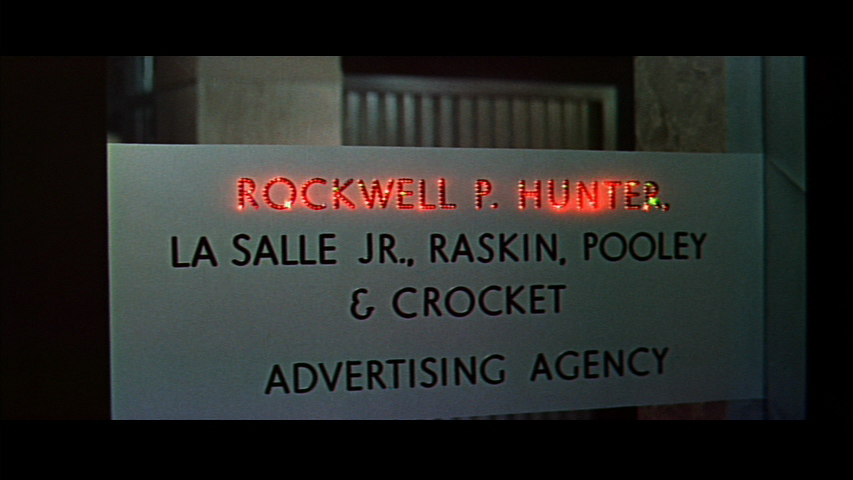
Made at Fox on the heels of The Girl Can’t Help It, this inventive 1957 comedy by Frank Tashlin is his most avant-garde (surpassing even Son of Paleface) and probably his most political — and therefore one of his most misunderstood. Tashlin adapted a Broadway play by George Axelrod, discarding almost everything but the title, the advertising milieu, and actress Jayne Mansfield. Shot in glorious color and CinemaScope, the film stars Tony Randall as a Madison Avenue executive who recruits Mansfield to endorse his product, and it presents a thoughtful and multifaceted polemic against the success ethic (a key line: “Success will fit you like a shroud”). Like Chaplin’s A King in New York, released the same year, the movie delivers a devastating caricature of 50s America; both directors, anticipating Jean-Luc Godard’s journalistic directive that one can — and must — place everything in a film, created dystopian versions of New York in which TV and advertising (rightly perceived as synonymous) obliterate the divisions between public and private. In keeping with George S. Kaufman’s maxim that “satire is what closes on Saturday night,” Rock Hunter flopped at the box office and was disastrous for Tashlin’s career. Read more
The following was written at some point in the early 1980s, as a kind of postscript or pendant to my first book, the autobiographical Moving Places: A Life at the Movies (New York: Harper & Row, 1980; 2nd ed., Berkeley: University of California Press, 1995). I was living in Hoboken at the time, and secretly in love with another writer whose first name was Veronica. A slightly altered and doctored version of this piece eventually turned up in Ian Breakwell and Paul Hammond’s English anthology Seeing in the Dark: A Compendium of Cinemagoing (London: Serpant’s Tail, 1990). The version here has also been altered and doctored a little, and I’ve added all the photos, including those of the Ritz before and after its 1985 restoration. — J.R.
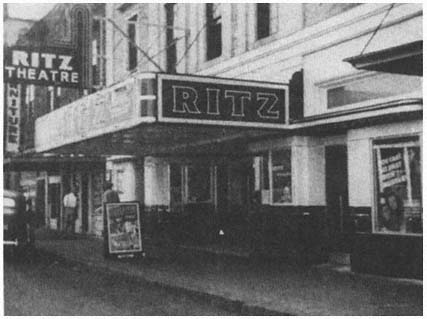
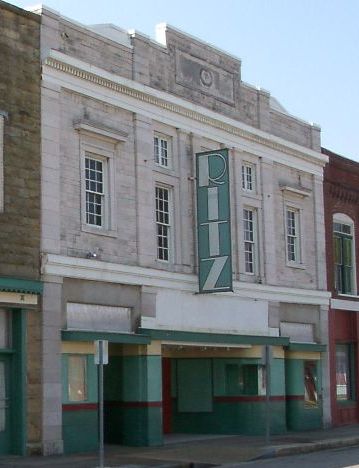
Putting Back the Ritz
Jonathan Rosenbaum
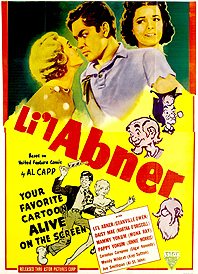

Between about 1947 and 1951, when the Ritz Theater in Sheffield, Alabama was still open (it was built in 1928 and received an Art Deco upgrade for talkies about five years later), my main encounters with the place, between the ages of four and eight, were on trips with my father across the river to pick up the final reports on the daily receipts on all four of the Rosenbaum theaters our family owned in Sheffield and Tuscumbia. Read more
This review for the March 1976 issue of Monthly Film Bulletin was part of a larger project, tied to my position as the magazine’s assistant editor, to have other films by Jean-Marie Straub and Danièle Huillet that were distributed in the U.K. reviewed in the magazine — in that particular issue, History Lessons (by Yehuda E. Safran), as well as The Bridegroom, the Comedienne and the Pimp (by Tony Rayns) and Introduction to Arnold Schoenberg’s Accompaniment to a Cinematographic Scene (by Jill Forbes). That same issue of the magazine inaugurated a back-cover feature that persisted for the publication’s remaining life and years, devoted in this particular case to a detailed bibliography that I compiled of interviews, scripts, and “other statements and texts” by Straub and Huillet, in half a dozen different languages. —J.R.
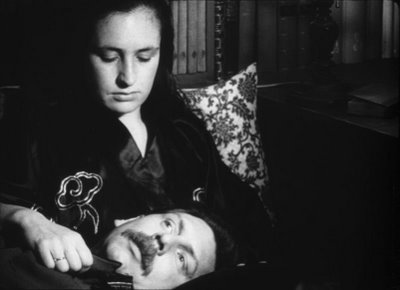
Nicht Versöhnt oder Es hilft nur Gerwalt, wo Gerwalt herrscht (Not Reconciled, or Only Violence Helps Where Violence Rules)
West Germany, 1965
Director: Jean-Marie Straub
“Far from being a puzzle film (like Citizen Kane or Muriel), Not Reconciled is better described as a ‘lacunary film’, in the same sense that Littré defines a lacunary body: a whole composed of agglomerated crystals with intervals among them, like the interstitial spaces between the cells of an organism”. Read more
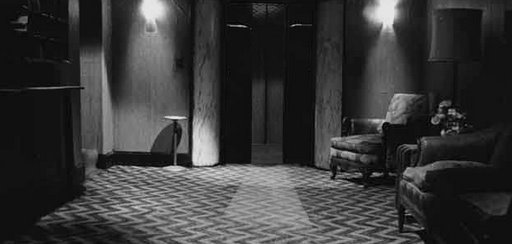
I’m grateful to have Kristin Thompson’s detailed and useful report on the Jacques Tati exhibition at the Cinémathèque Française, which closes on August 2nd and which I won’t be able to attend myself. But there’s one very small point in her account with which I disagree. I’m not referring to her spelling of Playtime as Play Time — a long-standing position of hers, based (I believe) on the styling of the film’s ads and opening title credit — because it’s possible that she’s been right about this while I and virtually everyone else have been wrong. (For me, the cinching argument either way would be how Tati spelled the title himself. I’m sorry that I never thought to ask him, during the brief period in 1973 when I worked for him.)
No, my disagreement has to do with the influence exerted by Tati on David Lynch, which Kristin deals with only parenthetically by noting that Lynch “might conceivably be said to reflect a Tatian influence only in The Straight Story.” I’m not disputing whether or not The Straight Story reflects Tati’s influence; as nearly as I can recall, this hadn’t occurred to me when I saw the film, and she might well be correct. Read more







